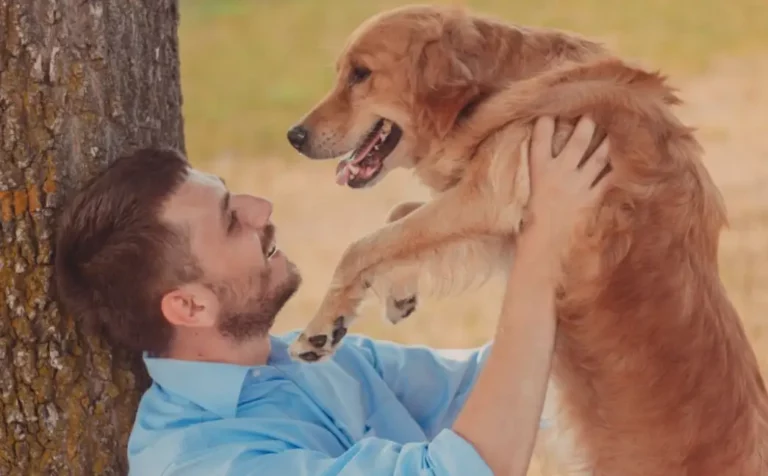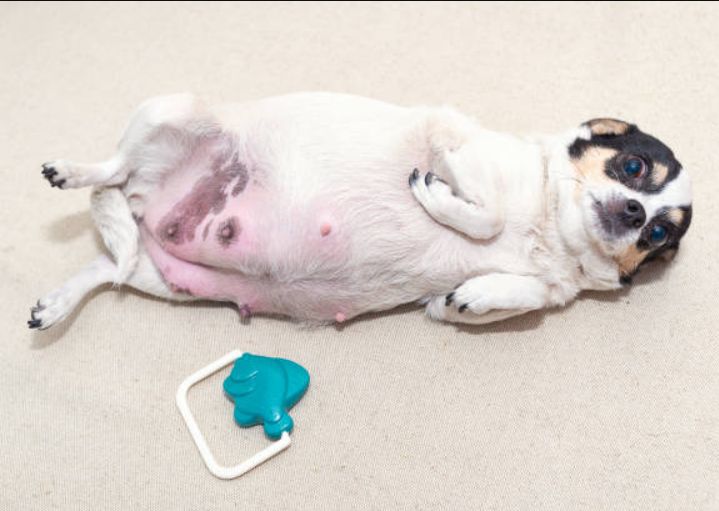What Is The Best Age To Buy A Dog?
It is normal to get excited after deciding to buy a new dog. However, if you own a dog for the first time, there is a certain age to bring them home. Because if you buy them at a very young age from the breeder, they will not grow properly.
What Is The Best Age To Buy A Dog? According to experts and veterinarians, the best age to bring home a puppy is about 8 to 10 weeks. This age limit is the optimum age when a puppy can communicate and socialize with humans and other animals.
At this young age of about 3 to 6 weeks old, they need their mother to feed and take care of them.

Later, when they are above five weeks of age, they begin to understand the environment and creatures. Thus, bringing the puppy when they can eat and feed themselves is suggested to live correctly with the humans.
That is why most people bring suitably aged puppies for about 8 to 10 weeks to pet them. They are now fully grown, have control over their senses, and start socializing well at this age.
Bringing the puppy is very exciting but a responsible job as well. They are too cute not to have in your house. But to have a healthy and happy dog, ensure you take care of his vaccinations and diet.
Table of Contents
- Puppy At 6-8 Weeks Vs. 8-12 Weeks
- Are 16 Weeks Too Old To Get A Puppy?
- Why Is My New Puppy Crying Always?
- Tips To Train A 16 Week Dog
Puppy At 6-8 Weeks Vs. 8-12 Weeks
When it comes to their first few weeks, your new puppy has a lot in store for you and your family.
After all, that is when they learn how to eat, drink water, play nicely with other pets and kids, and more. Most owners have the best time learning how their puppies grow and develop over those 12 weeks.
It’s also one of the most critical periods in a dog’s lifetime, followed by several months of socialization. So what do you need to know before adding a new member to your family? Let’s get started with the basics: six weeks vs. eight weeks old.
An eight-week-old puppy is pretty much fully grown. The pup is about 60 percent of his full adult size and fully developed in many ways.
By 12 weeks old, he’ll be about 75 percent of his adult size. But it is still the developing age for dogs, and their brain and body begin to grow gradually over the 8 to 12 weeks.
With increasing age, dogs become more mature in controlling urination. You will also start noticing the less sleep requirement for the dogs as they are now becoming adults.
A puppy should be around 22 ounces at six months old and have gained about one-half pound per month for the past three months. Six to eight-week-old puppy is still in infant age.
Young dogs are very playful and active and thus require proper diet and nutrition. They need 15 to 18 hours of good sleep. That is why you would see them lying in their corner and napping most of the time.
Feeding your dog at least four times daily for proper body growth. These numbers are general guidelines; do not worry if your puppy seems small or large compared to these general averages.
puppies diary
Puppies Can Leave Mother
It is the most common question people bring a dog as a pet. Most owners worry about buying a young puppy because they must be separated from their mother. So when can a puppy leave their mother?
Thus experts suggest that you should not separate the pup from its mother until they are eight weeks old.
Eight to ten weeks is the primal age of bringing or adopting a dog. Younger puppies must spend time with their mother and other littermates for their overall development.
The puppy’s mother teaches many things, from eating habits to what to eat and many other lessons.
They make sure that the puppy has suitable lessons to adopt in their life to become a good adult dog. The puppy should leave their mother only after 8 to 10 weeks.
This would ensure the overall growth of both body and brain. If you bring a dog home, ensure you take care of them.
As for the 10 to 14-week-old puppy needs care:
- Provide Plenty of Love and Attention- Once your puppy has come into the world and started to grow, it needs more care than ever before.
- Play With The Puppy – The best way to train a puppy is to play with him. You can do this since he is small, which will help him control himself while you want something more.
- Take Walks Together – It is essential for the sixteen weeks old pet because by walking in a public place, he will learn how to know what other people are doing there and how they can help him when he’s in trouble.
Are 16 Weeks Too Old To Get A Puppy?
No, 16 weeks is not that old to bring a puppy home. However, sixteen weeks or four months of dog is still a young and growing age for dogs, and you can pet them without any worries.

The four-month-old puppy has some advantages that are mentioned below.
- Sixteen weeks is the top age for puppies to be vaccinated, protecting them against common diseases like rabies.
- Some veterinarians recommend bringing your puppy in at 12 weeks old, but 16 weeks is more than sufficient for safety’s sake.
- Bringing your puppy in earlier than 16 weeks can limit the quality of his care and lower the likelihood of him being adopted.
- It is easy for the sixteen-week-old puppy because you should teach him how to eat. However, it is essential for the sixteen-week-old pet because you need to train him how to eat in a good way.
The 16-week-old puppy needs attention from at least one person a day, and by training it, he needs to learn when and where, and what it means when people come into his place. As long as your 16 weeks old pet understands that, he will get along with everyone else in the house.
Teaching your puppy how to sit and stay, lie down, and perform other basic commands would be best.
It’s essential for the sixteen weeks old pet because, without training, he will never know what he does wrong and will never learn to control or understand himself.
Why Is My New Puppy Crying Always?
When a young puppy constantly cries, it can be frustrating and worrying for owners. A puppy’s brain and nervous system develop rapidly like a human baby.
It’s not uncommon for this development to interfere with normal functioning or create temporary discomfort until the pup grows out of it. Let’s look at some things that can make a young pup cry.

Young puppies tend to be very engaging; it’s difficult for them to sit still when you’re there. They want to explore, interact with their humans and see what goes on around them in the house.
Understandably, they want to be near their people, but it doesn’t mean they have to monopolize all their owners’ attention. Try to put your dog in a separate room, crate, or behind a baby gate.
This will give them their space and help them focus on what they need to do without being distracted by your puppy’s constant crying.
Also, do not spend more time with your puppy than is necessary. It would be best if you had some peace to get things done around the house or even relax and watch television.
Tips To Train A 16 Week Dog
The most important thing about training a puppy is the pup’s age. Depending on their temperament, pups are often ready for training between 10 and 16 weeks old.
Therefore you should know how to train them at home. Here are some tips that you should follow while training them.
- Training a 16-week-old puppy can be challenging but rewarding if you have the patience and dedication as long as they are not aggressive or get into fights with other dogs.
- The training process should start at a young age because the earlier you can teach the pup obedience, the easier it will be to train them in the future. To do that, you need to know your dog’s behavior and how to prepare them for it.
- You can use clicker training as an alternative method of behavioral correction with positive reinforcement. Positive reinforcement is an effective way to keep your dog happy and obedient.
This method involves rewarding your puppy for good behavior instead of scolding them for bad behavior, often referred to as negative reinforcement.
You mustn’t use positive reinforcement in the same way, meaning if they’re not doing as you ask, do not reward them.






